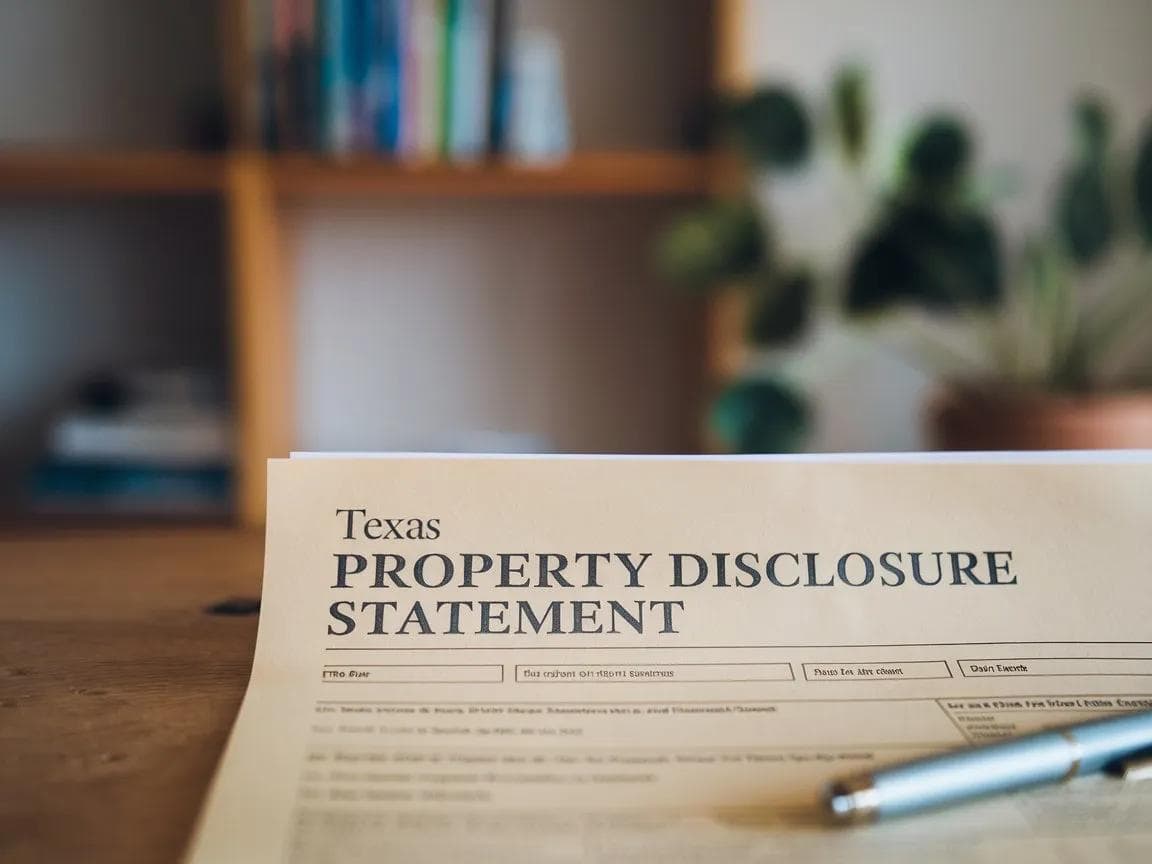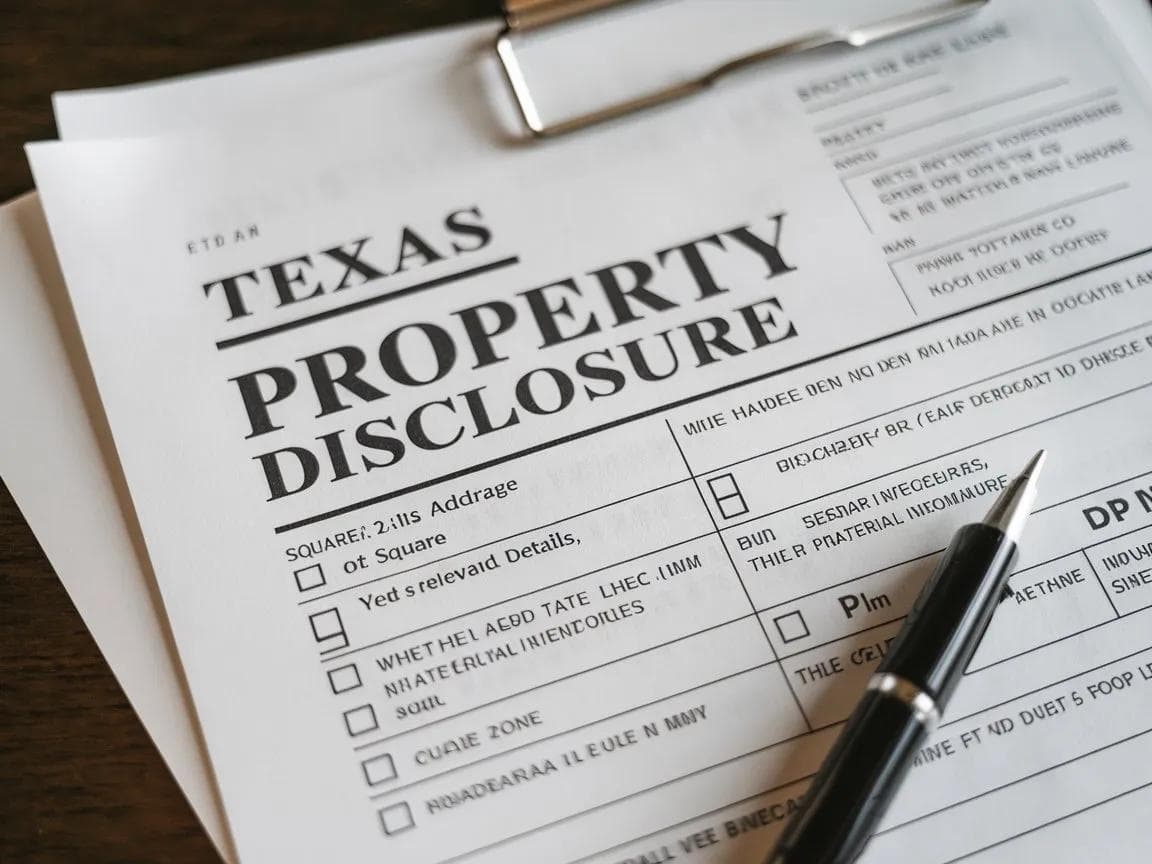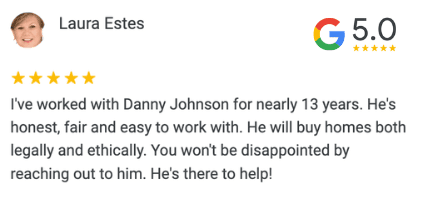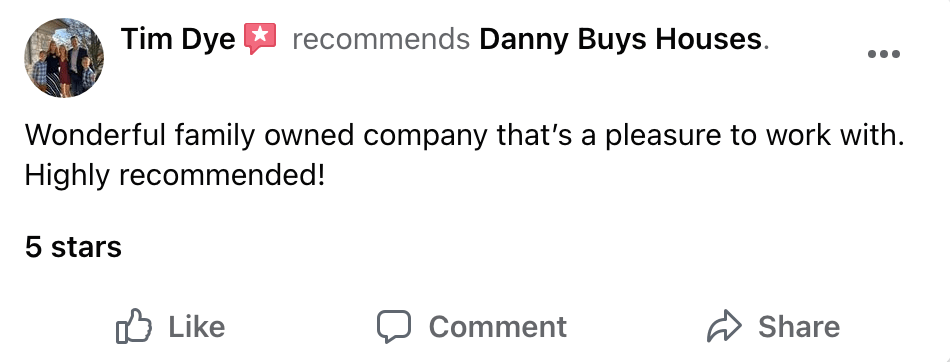
Typical Property Disclosures in When Selling an Unrenovated Home
By Danny Johnson | Updated 3/4/2025, 3:53:20 PM
When selling an unrenovated home, a seller must disclose potential defects to buyers. Understand the essential elements of a property disclosure statement.
- Key Takeaways
- Essential Health and Safety Disclosures for Property Sales
- Lead-Based Paint and Asbestos Requirements
- Environmental Hazards and Toxic Substances
- Structural and Mechanical System Issues
- Water Damage and Mold Concerns
- Property Disclosures in Unrenovated Home Sales
- Property History and Previous Repairs
- Neighborhood Nuisances and External Factors
- HOA Information and Requirements
- Natural Hazards and Geographic Risks
- Sell As Is To Danny Buys Houses to Skip the Renovations
🗂 Table of Contents
Selling a home can be a rollercoaster ride, even more so for unrenovated ones being sold as is. I felt both excited and anxious when I decided to sell my fixer-upper. But, being honest about your home's condition is key for a smooth sale. Let's explore property disclosures together.
When selling a home, disclosure laws require sellers to be open about the property's state. It's like showing your cards in poker - no surprises. This honesty builds trust and protects you from legal issues later.
As a seller, you must reveal any known defects or issues. This includes small problems like a leaky faucet to big ones like structural issues. The goal is to give buyers a clear view of what they're considering.

Some might wonder if they need to point out every flaw. Yes, you do. These disclosures protect you from future claims of hidden information. An informed buyer is more likely to commit.
If unsure about your home's condition, a home inspector can help. They can spot issues you might have missed. Remember, disclosing a problem doesn't mean you have to fix it - that's negotiable.
If you are scared of liability and disclosures, consider finding people who pay cash for houses that do so as a living. They will typically buy your house as is without requiring disclosures.
Key Takeaways
- Sellers must disclose known property defects to buyers
- Disclosure laws protect both sellers and buyers
- Honesty builds trust and can lead to smoother transactions
- Home inspectors can help identify issues for disclosure
- Disclosing doesn't always mean you must repair
In Texas, the residential property disclosure statement is essential. It's a multiple-page form that covers many aspects of the property. For example, if your home is in a flood zone, you must disclose this. The same applies to homes in radon zones or those with outdated plumbing.
Texas follows a "caveat emptor" or "buyer beware" rule. Sellers must disclose certain things, but buyers also need to do their homework. For instance, buyers should check if the property is in a special flood hazard area, which could affect their insurance.
Selling your home doesn't have to be stressful. By being open about your home's condition, you're following the law and setting the stage for a smooth sale. So, take a deep breath, grab that disclosure form, and let's sell your home!
Essential Health and Safety Disclosures for Property Sales
Selling a home is more than just finding a buyer. It's about being honest about any issues that could affect the property's value or safety. Let's explore the key health and safety disclosures you need to know when selling your home.

Lead-Based Paint and Asbestos Requirements
If your house was built before 1978, you must disclose any known lead paint. It's not just good practice - it's the law! For homes built before 1975, many states require asbestos disclosures too. These disclosures show you're a responsible seller and help buyers make informed decisions.
Environmental Hazards and Toxic Substances
Radon, a colorless, odorless gas, is a serious health hazard. If you've tested for radon, share the results. Other environmental concerns like nearby toxic waste sites or air quality issues should also be disclosed. Remember, honesty is the best policy when it comes to property disclosures.
Structural and Mechanical System Issues
Your roof, heating, ventilation, and air conditioning systems are crucial parts of your home. If there are any known issues with these or other structural elements, it's important to disclose them. This includes past repairs or ongoing problems. Your estate agent can guide you on what specific disclosures are required in your area.
These are things you really should consult specialists about.
Water Damage and Mold Concerns
Water damage can lead to mold, a significant health concern for many buyers. If you've had flooding or persistent leaks, be sure to mention it. Even if you've addressed the issue, disclosing past problems can prevent future headaches.
"In a home sale, what you don't say can hurt you. Open communication builds trust and protects both buyers and sellers."
Remember, these disclosures aren't meant to scare buyers away. They're about building trust and ensuring a smooth, legal sale process. When in doubt, disclose!
Property Disclosures in Unrenovated Home Sales
When selling a house, property disclosures are key. They help buyers understand the home's history and condition. Let's explore the main points of property disclosures for unrenovated homes.
Property History and Previous Repairs
Homeowners must share the property's history and past repairs. This includes major work on electrical, plumbing, or structural elements. Sellers must list these details in the disclosure statement. This gives buyers a clear view of the home's maintenance history.

Neighborhood Nuisances and External Factors
Buyers want to know more than just the house. The seller disclosure should cover neighborhood issues or external factors. This could be noisy neighbors or industrial activities nearby.
HOA Information and Requirements
If the property has a Homeowners Association (HOA), sellers must share this info. This includes HOA fees, rules, and any special assessments. Full property disclosure benefits home sellers by offering transparency and trust with potential buyers.
Natural Hazards and Geographic Risks
Sellers must also disclose natural hazards or geographic risks. This could be flood zones, earthquake risks, or wildfire-prone areas. A real estate attorney can help ensure all necessary disclosures are made. This protects both the seller and buyer.
"Honesty is the best policy when it comes to property disclosures. It not only protects you legally but also builds trust with potential buyers."
Sell As Is To Danny Buys Houses to Skip the Renovations
Feeling overwhelmed by the thought of renovating your unrenovated home before selling? I've got great news for you! Selling "as is" to Danny Buys Houses in Texas can be a game-changer. Close to 80% of homes last year exceeded the average buyer's budget. Investors like Danny Buys Houses offer a simplified solution.
Real estate investors usually offer about 70% of a property's after-repair value (ARV) for homes they plan to flip. This might seem low, but think about the time and money you'll save. A pre-listing home inspection alone can cost $300-$600 on average. By selling "as is," you avoid these fees and potential repair costs.
The Texas real estate market is bustling, with a median home sales price of $330,950 in Q1 2024. Homes spend an average of 65 days on the market. But, cash buyers like Danny Buys Houses can close deals in as little as 10 days! This speedy process can be a lifesaver if you're looking to move quickly or need immediate income from your property sale. Remember, while you still need to be honest about your home's condition, selling "as is" to Danny Buys Houses could be your ticket to a smoother, faster home sale in the Texas marketplace.
Frequently Asked Questions
In this section we will answer the most common questions to Property Disclosures in When Selling a House As Is
What does selling a house as is mean for property disclosures?
Selling as is means the seller will not make repairs or improvements. However, sellers must still provide legally required disclosures about known issues.
Are sellers required to disclose information about homeowner associations (HOAs)?
Yes, sellers must disclose details about HOA fees, rules, and any pending assessments that could affect the buyers decision.
How does transparency impact the sale of an as-is property?
Transparency builds trust and can prevent legal disputes by ensuring buyers are fully informed about the propertys condition and any associated obligations.
What common issues must be disclosed even when selling a home as is?
Common disclosures include structural defects, environmental hazards, zoning violations, and any liens or encumbrances on the property.
Can failure to disclose certain information lead to legal consequences for sellers?
Yes, failing to disclose known material facts can result in lawsuits or financial penalties if it misleads buyers or violates state disclosure laws.

AUTHOR
Danny Johnson
Owner and Founder at Danny Buys Houses
Danny Johnson is an experienced real estate investor who has been buying houses for cash since 2003. As owner of Danny Buys Houses, Danny's goal is to help homeowners sell their house fast, regardless of the situation, so they can move on with their life.
Danny has been featured in publications such as Forbes, Realtor.com, BiggerPockets, Yahoo Finance, US News, and more. He is also the author of the book 'Flipping Houses Exposed'.




